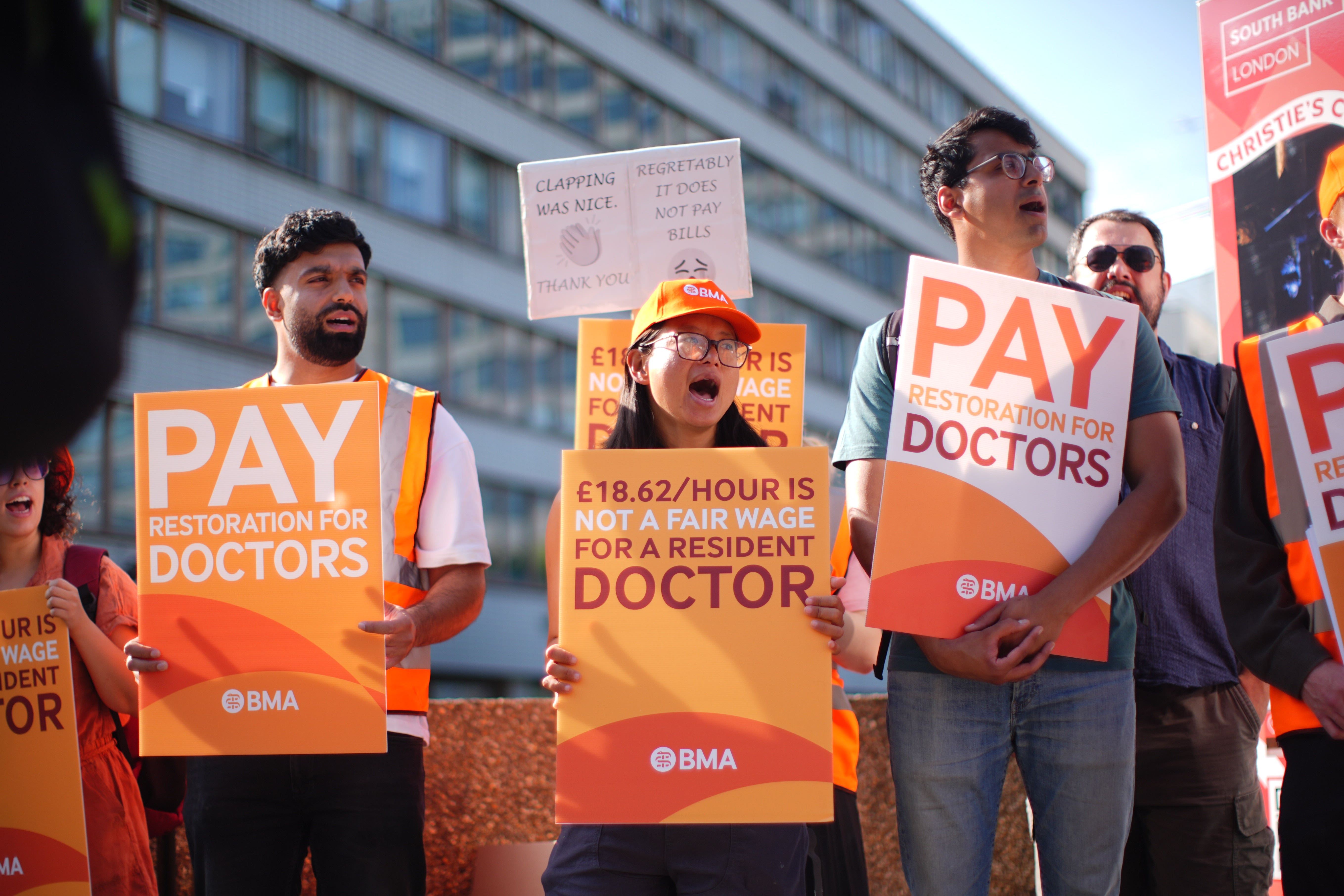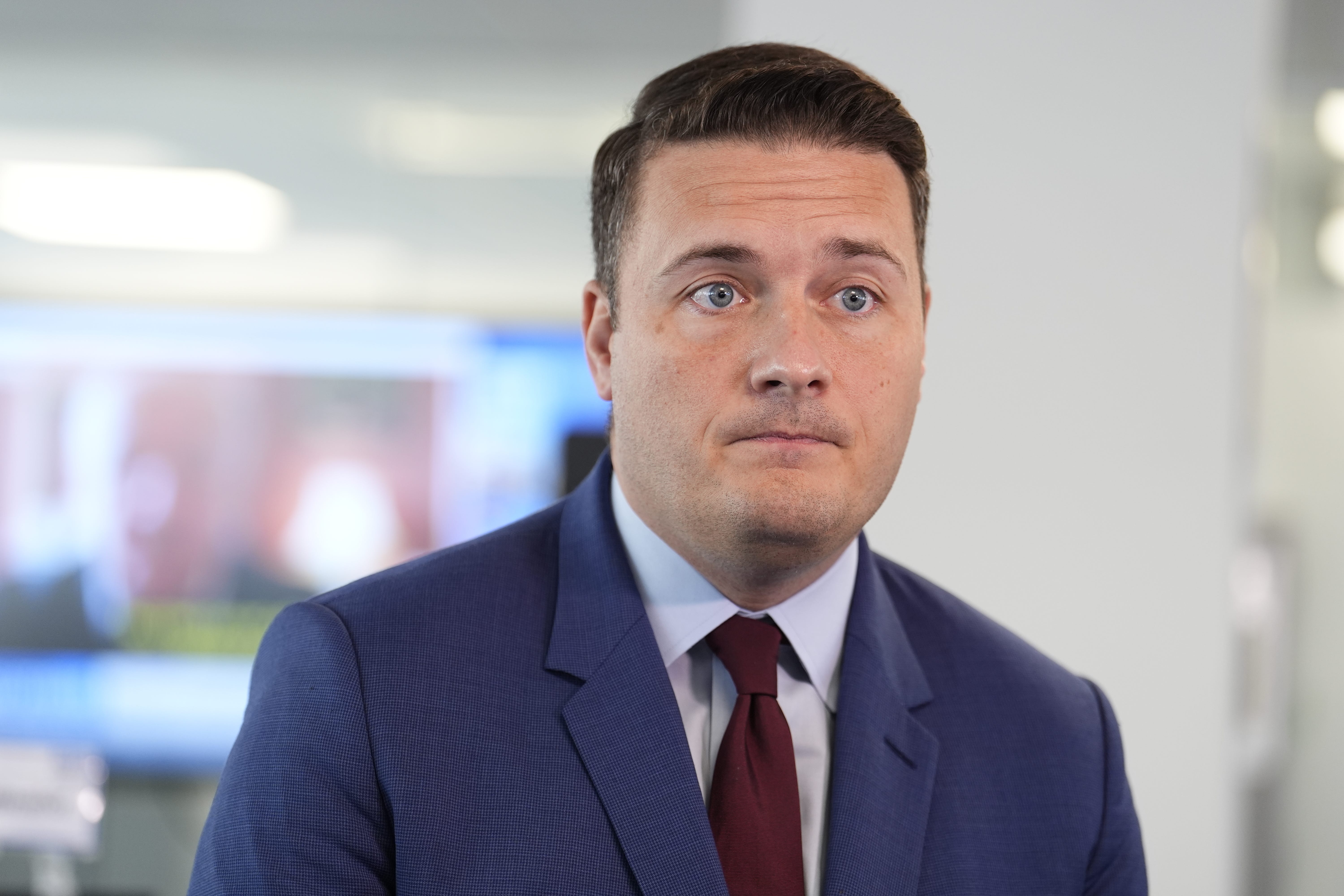Thousands of patients had their NHS appointments cancelled during the five-day resident doctors' strike last month.
However early data also shows the NHS maintained care for an estimated 10,000 more patients during the latest doctors’ strike compared with last year’s industrial action, the Department for Health and Social Care (DHSC) said.
The number of resident doctors who walked during the recent strike was also down by 1,243 - 7.5 per cent, the DHSC said.
During the five-day strike in June and July 2024, 61,989 inpatient and outpatient appointments were rescheduled, and 23,001 staff were absent from work due to strikes at the peak of the action. However, the DHSC has claimed that during the most recent dispute, the NHS saw less disruption this time around.
NHS chief executive Sir James Mackey noted that care was still disrupted for thousands of people.
He said: “While this is really good news for the vast majority of patients whose treatment went ahead, we should still acknowledge that there were thousands whose care was disrupted.
“NHS staff will continue to work hard to ensure patients can get their rescheduled care as soon as possible, but for those patients – and for all our staff who had to work extra shifts or with different responsibilities – a repeat of this action will be unacceptable.
“So, I would urge the Resident Doctors Committee to get back to the negotiating table and work with us and the Government on the meaningful improvements we can make to resident doctors’ working lives.”
The full data on cancellations is yet to be released; however, NHS England and the DHSC have released an “early” analysis. The impact on A&E waiting times is not clear.

Health and Social Care Secretary, Wes Streeting, said: “Due to the dedication of NHS staff and a different operational approach from previous strikes, we have managed to significantly reduce disruption to patients, with early indications showing that 10,000 extra patients are receiving care compared to previous strike action.
“Despite the huge effort made to keep as much planned care as possible going, let's be clear – these damaging strikes still come at a cost to patients, other staff and the NHS.”
He added: “I want to end this unnecessary dispute and I will be urging the BMA to work with the government in good faith in our shared endeavour to improve the working lives of resident doctors, rather than pursuing more reckless strike action.”
The DHSC claims the drop in cancellations was due to a change in the NHS’s approach, which aimed to maintain planned care rather than cancel it as happened during previous rounds.
The government has claimed it maintained 93 per cent of planned appointments, procedures and operations.

The claims come as the DHSC faces winter disruption from nurses and other healthcare workers after their unions warned members had rejected the 3.6 per cent pay award given to them for 2025-26.
Across the strikes in 2023 and 2024, which also included nurses and ambulance workers, around 1.5 million planned appointments were cancelled across England.
Resident doctors, represented by the British Medical Association, staged strike action over a pay dispute in which the union is calling for a 29 per cent pay rise. It says this is to address a 22 per cent decrease in real terms pay since 2008.
Following the strikes, the BMA opened a new dispute with the government over specialist training posts, claiming tens of thousands of resident doctors face not having specialist jobs at the end of the summer.
The government has repeatedly said it will not move to increase pay.
According to the DHSC and NHS England, some trusts managed to maintain more than 90 per cent of planned care, including West Hertfordshire Teaching Hospitals NHS Trust which maintained 98 per cent and University College London Hospitals NHS Foundation Trust, which maintained 95 per cent.
A BMA spokesperson said:“We recognise that for any patient to receive care – urgent or planned – during the period of strike action is of course beneficial for them and we recognise the efforts senior doctors, along with other healthcare workers, will have made to provide that care.”
The BMA added: “Even with NHS England’s determination to carry on as if the strikes were not happening, we know that operations will have been postponed, and clinics rescheduled. But all of that could have been avoided if the Health Secretary had been serious in his intent to find a negotiated settlement with us. The strike could have been averted, as could any future ones, if Mr Streeting had come, and will come, to the table with a credible offer that resident doctors in England can accept.”







